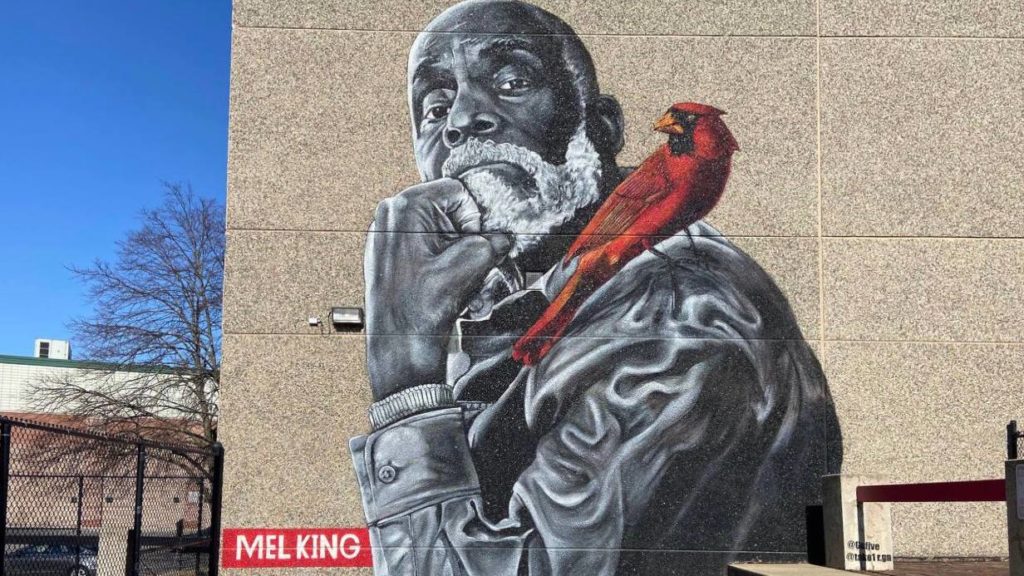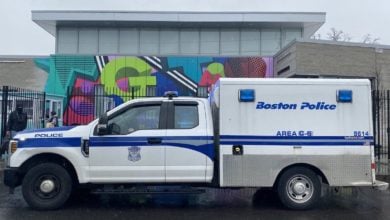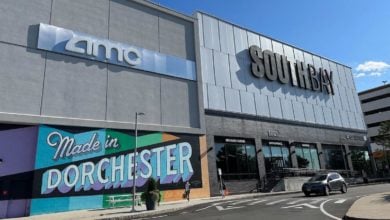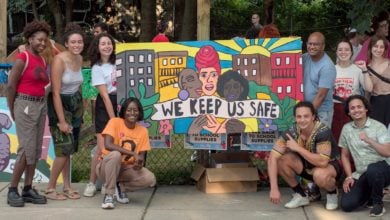After decades of commitment to the cause of Black liberation and resident-led community development, beloved Boston giant and the city’s first Black mayoral candidate, Melvin “Mel” King, has died at the age of 94.
Mel King was a community organizer and advocate, educator, mathematician and political leader in Boston. Born and raised in the South End — which represented the heart of the Black community in the mid-twentieth century — King is well known for his role in the fight against Boston’s Urban Renewal Program in the 1960s. These infamous policies displaced many working class people across the city of Boston. Black communities including the South End were hit especially hard.
“In a time when revolutionary movements had been beaten back and the right wing was on the offensive through Reagan’s administration, Mel King’s organizing in Boston kept political aspirations of Black and all working class people at the forefront,” said Joe Tache, Roxbury resident and organizer with the Party for Socialism and Liberation. “Learning about Mel King as a young organizer helped me understand the importance of building power in our communities and connecting our local struggles to national and international struggles against exploitation and oppression.”
In the 1960s, Mel King and others helped to develop the Community Assembly for a United South End, a group dedicated to uplifting the concerns of tenants and keeping them informed of developments in the South End.
In the wake of Martin Luther King Jr.’s assassination, political activity across the country was high. In Boston, CAUSE organized its most militant action yet in response to the demolition of 100 working class families’ homes. The parking lot that replaced these homes was slated to be redeveloped into market-rate housing. Community members from the South End, led in part by Mel King, erected a temporary “tent city” and occupied the vacant lot, demanding that the land be used to house South End families. Despite being initially rebuffed by the city, the organizers continued the struggle for years until the city agreed to support the demand for affordable housing to be built on the plot. To honor the history of its creation, the new housing complex was named “Tent City.”
The creation of Tent City was a huge win for the residents. This victory is especially instructional today in a rapidly gentrifying Boston where truly affordable housing is few and far between. This committed and creative struggle of CAUSE teaches present day organizers and community members about how to fight back against attacks on our homes and way of life.

The Tent City victory is only part of what has made Mel King so beloved in Boston. He built his career through community organizing and education. And after decades of working with youth, working class and Black communities in Boston, in 1983, King became the first Black Mayoral candidate in Boston. In the aftermath of school desegregation and the “Boston Busing Crisis,” many across the city were particularly inspired by his campaign, which was based on a “rainbow coalition” of working class people from different racial backgrounds.
Upon his retirement in 1997, Mel King founded the South End Tech Center in partnership with Tent City and MIT’s Center for Bits and Atoms. The goal of the SETC is to expand the surrounding community’s access to science and technology. The center serves students, workers and community members and provides access to explore technology. In 2020, during the initial onslaught of the COVID pandemic, the PSL collaborated with the SETC to hand-sew, 3D print, and deliver free masks to community members in need. The program, called PPE for the People, sought to extend the legacy and history of radical community organizing in Boston that has been built by Mel King and many others.
In political office or not, King maintained a level of political candor that is unique among community leaders. He consistently called attention to the systems that affect the living conditions of workers and the oppressed. In his book, Chain of Change, King writes about how the ruling class exploits oppressed nations domestically and internationally:
“They have no intention of letting go their hold of the one-way benefits that come through the colonial relationship, in which they have the upper hand. The same people who, today, are ripping off the resources of people of color in Africa and Asia, have also been busy exploiting the resources of the Black community in Boston for all these years. The controls used to maintain this relationship, both at home and abroad, are psychological and physical.”
We are honored to uplift the life and sacrifices of committed freedom fighter Mel King, whose legacy will continue to live on and inspire community members, young and old, seeking to make change in Boston and beyond.
Mel King, presente!






